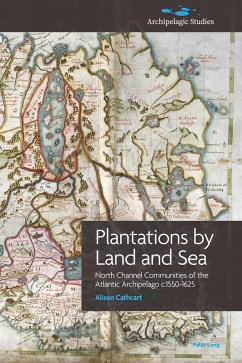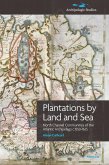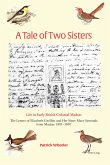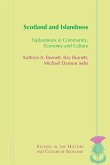This book traces the development, and subsequent implementation, of the policy of plantation from the mid-sixteenth through to the early seventeenth century focusing specifically on the North Channel context. By examining why plantation emerged as a policy within the north of Ireland, why it was implemented within the western Highlands and Isles of Scotland, and the repercussions of such a policy, the book will engage with debates about plantation as part of a «civilising» policy, and what that meant for communities and individuals that were brought together by the waters of the North Channel. Rather than view plantation as a tool of state formation, formulated at the centre and imposed onto the periphery, the author seeks to emphasise it was the result of ongoing dialogue between a number of individuals and communities and was as much a response of the centre to events on the periphery. Thus, while plantation in the northern province of Ireland came to be a pivotal part of James VI and I's «British» project, the outworking of that policy was rather different.
Dieser Download kann aus rechtlichen Gründen nur mit Rechnungsadresse in A, D ausgeliefert werden.
«This is an important and original regional study of the interconnected communities in Scotland and Ireland that spanned North Channel from the late middle ages into the early seventeenth century. In a meticulously researched and engagingly written book, Alison Cathcart brings fresh perspectives to the comings and goings of mercenaries, merchants, mariners, and migrants. In an era when the sea united the communities in the archipelago of islands that comprised the North Channel world, she places welcome emphasis on climate, cultivation, and commerce as she untangles the «civilising» schemes of Elizabeth I and James VI and I. This is a must read for anyone wanting to understand plantations and colonisation in both Ireland and Scotland.» (Professor Jane Ohlmeyer, Chair, Irish Research Council, and Erasmus Smith's Professor of Modern History (1762) Trinity College Dublin)
«The North Channel linking Ireland and Scotland was one of the key waterways of Western Europe in early modern times. For numerous Highland Gaels, Irish, English, and Lowland Scots it was a route to rapacious profit, exile, death, and much else. Alison Cathcart's luminous study casts new light on those historic connections and firmly establishes herself in the front rank of Scottish and Irish historians of that period.» (Professor Emeritus Sir Tom Devine Kt OBE HonMRIA FRSE FBA)
«The North Channel linking Ireland and Scotland was one of the key waterways of Western Europe in early modern times. For numerous Highland Gaels, Irish, English, and Lowland Scots it was a route to rapacious profit, exile, death, and much else. Alison Cathcart's luminous study casts new light on those historic connections and firmly establishes herself in the front rank of Scottish and Irish historians of that period.» (Professor Emeritus Sir Tom Devine Kt OBE HonMRIA FRSE FBA)









